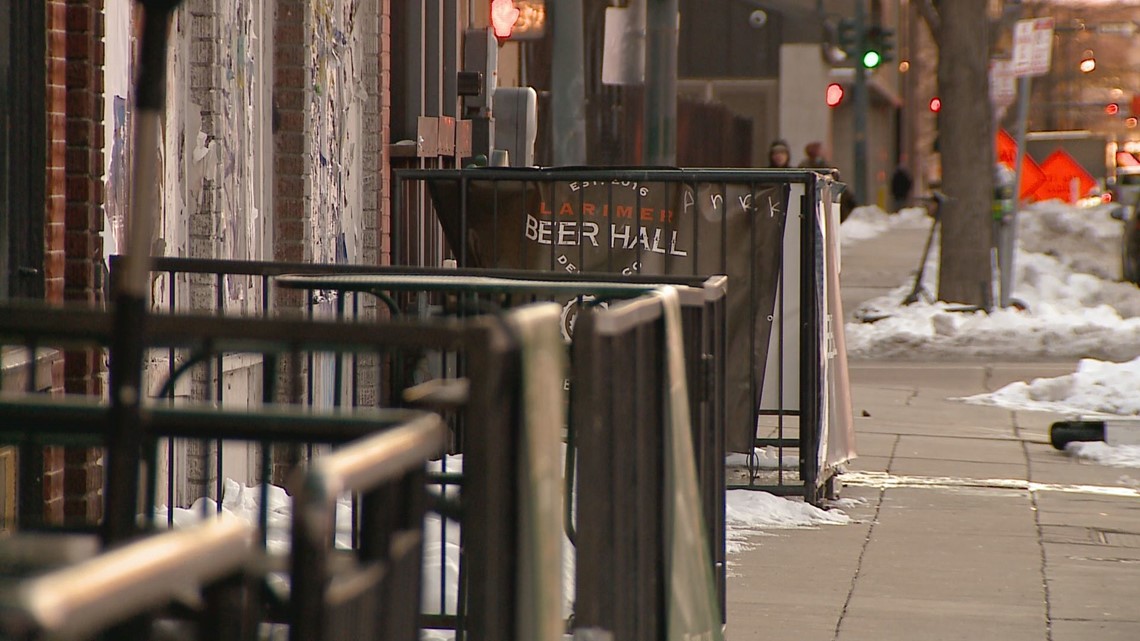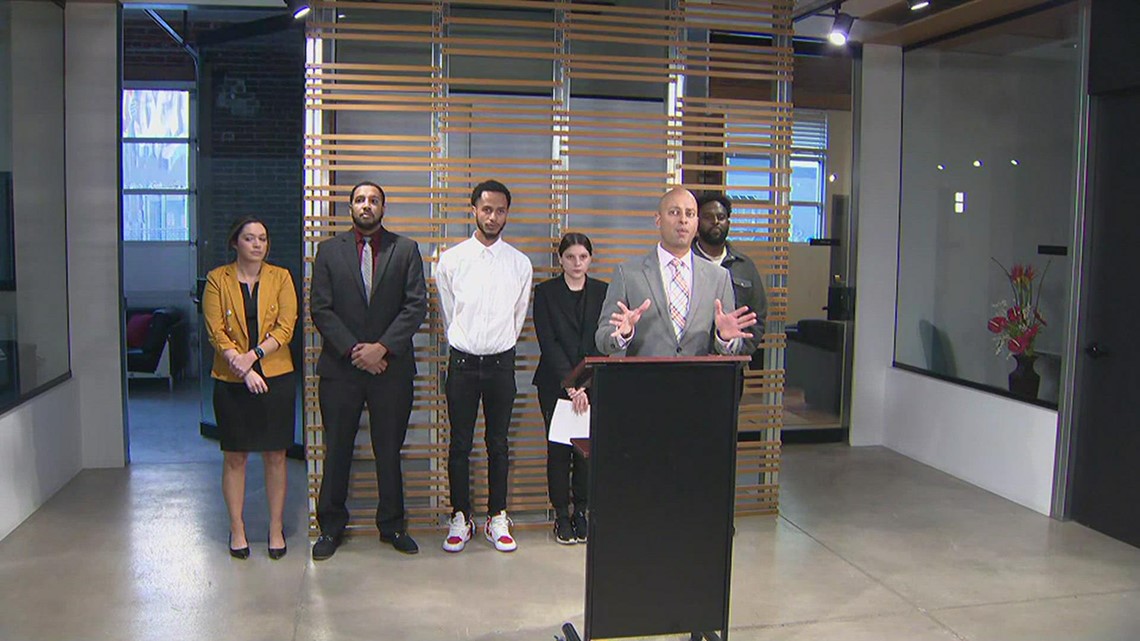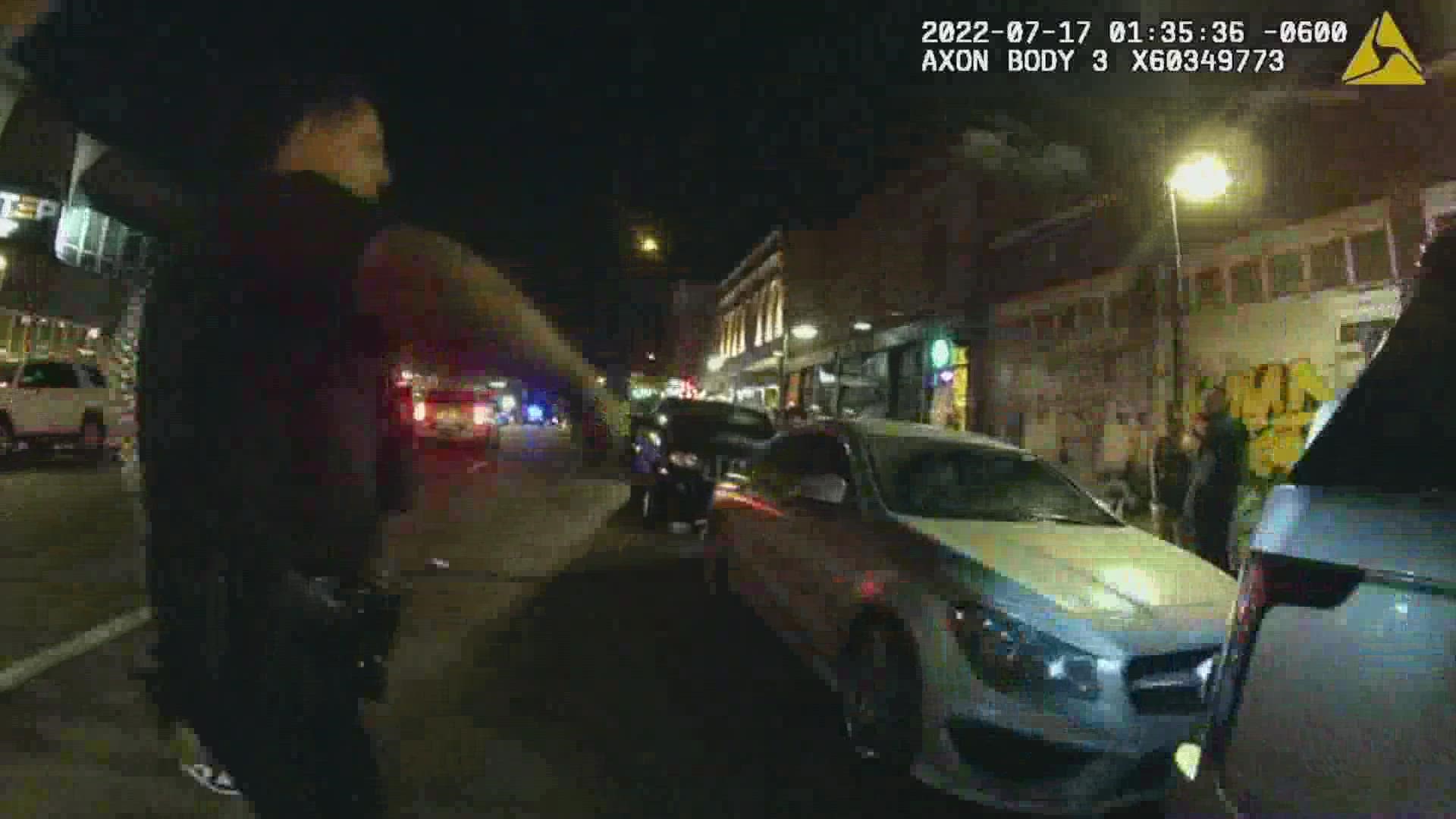DENVER — A Denver grand jury indicted former Denver police officer Brandon Ramos this week in response to the officer's actions on the night of an officer-involved shooting in the "LoDo" neighborhood.
According to DPD, officers saw 21 year old Jordan Waddy, shoving and punching another person in the early morning hours of July 17, 2021, outside Larimer Beer Hall. Waddy was the "aggressor" in the attack, hit the other man and had a gun.
DPD said Waddy pointed a gun at two officers, who each fired at him. One of those officers fired four rounds and the other fired twice, DPD said.
A grand jury found the other two officers had clear shots without anyone behind the suspect.
Now, charges that Ramos faces include eight counts of assault. DPD said Ramos will be suspended without pay due to the felony charges which is standard protocol, and hasn't been on patrol since the shooting.
It is the latest indictment among other examples of grand juries trying to hold law enforcement accountable, like in the Elijah McClain and Christian Glass cases.


9NEWS Legal Expert Scott Robinson says historically, officers are rarely charged with any kind of criminal offense in a police shooting where an individual had a gun.
"But the tide has turned and contrasting the officer worn cameras of the other two officers with that of Officer Ramos is what I think led the grand jury to indict Ramos on multiple charges," he said. "Video is a wonderful aid to the justice system."
Robinson adds that the charges against Ramos are not based on intentional acts, but on recklessness and negligence, adding that having a jury weigh in on that would be more reliable than leaving it solely to an elected prosecutor.
"A typical police shooting of defense is that the officer had to respond in a split second and do the right thing to take down an armed individual. And that's true. And that's a realistic view of how officers work," Robinson said. "The problem with this case is that the officer worn cameras indicated that unlike the two officers who had clear shots, Ramos did not have a clear shot. There were numerous people in the background, innocent folks, and six of them were shot and several of them very seriously injured."


Ed Obayashi, a use of force expert who also trains law enforcement in California, says he works to communicate the indictments of officers in his training.
"Naturally, part of the training must cover the potential liability, both criminal and civil ramifications for police officers involved in use of force situations, not just shootings themselves," he said in part. "But what I emphasize is that we're living in a very different environmental law enforcement environment than we did a few years ago. We want to constantly develop training, especially obviously in use of force and deadly force. But I do advise them. You're an officer. Do what you think is right."
However, he also believes that the prominence of indictments like this, could impact things like recruiting or morale among departments of law enforcement.
"It's a very different atmosphere for the deputies and officers to think that, gee, you know, I could be the next one, I could be the next guinea pig for a prosecutor," he said.
SUGGESTED VIDEOS: Investigations & Crime

